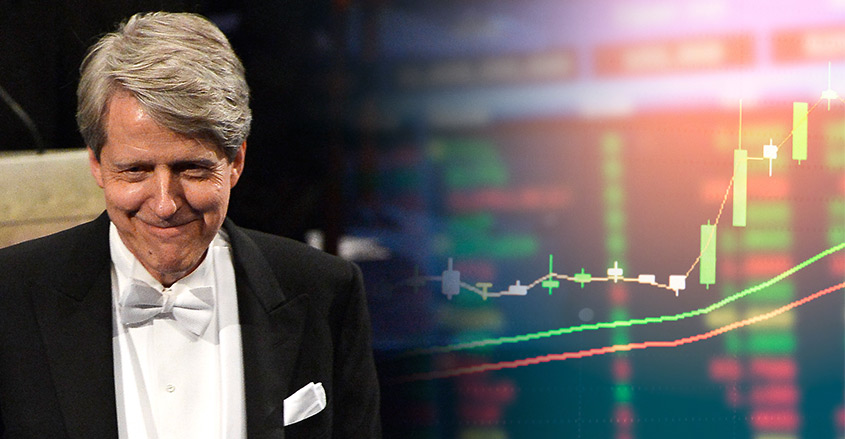Nobel Prize-winning economist and Yale professor Robert Shiller, known calling previous stock and housing crashes, now believes that the U.S. stock market is “overpriced.”
Yet this does not mean that he is completely writing off the current bull market — for now.
Shiller’s reasoning is something that he calls the “Trump effect.” That is, President Donald Trump’s noted pro-business policies.
“There is a sort of optimism about the markets under Trump, and that’s continuing. I don’t see a reason for it about to change,” Shiller said.
“There’s something about how the world is reacting to the president. Something about his self-confidence which is gradually lifting our spirits.”
Shiller says stock gains are possible this year, but he warns that the Trump effect, while positive for stocks, “is not a very reliable thing.”
Shiller advice: “Diversify abroad.” Sell some of your U.S. stock gains and buy foreign stocks instead.
“If you have been overexposed to the United States in your portfolio, this is a time to reconsider that,” Shiller said.
“Not to pull out, but to balance things. Europe is cheaper than the U.S.”
Even if you don’t want to buy foreign stocks, owning more domestic shares isn’t advisable, Shiller argued.
“I don’t want to encourage people too much to put a lot into the most expensive market in the world,” he said.
“The U.S. has the highest CAPE ratio of 26 countries. We are number one.”
CAPE stands for cyclically adjusted price-to-earnings, a measure created by Shiller at Yale to study the pricing of stocks compared to earnings.
Ordinary price to earnings (PE) ratios look back 12 months.
The CAPE, meanwhile, looks back 10 years in order to smooth out year-to-year variations in a given share or market.
Black Tuesday warning
Late last year, Shiller noted how the current stock market was in some ways similar to the stock market of 1929 — just before Black Tuesday and the ensuing Great Depression.
Shiller’s reasoning was that valuations were then, as now, extremely expensive. Stocks were too high to be sustained, which fed the panic and the crash that followed.
“The market is about as highly priced as it was in 1929,” Shiller said.
“In 1929 from the peak to the bottom, it was 80% down. And the market really wasn’t much higher than it is now in terms of my CAPE ratio.”
“So, you give pause when you notice that.”
Shiller was quick to add that there was one major difference between 1929 and the market that we see currently — market psychology.
He cited Trump effect then as well, suggesting that tax cuts — now enacted — were driving business and investor confidence.
“It’s not just a matter of low interest rates, it’s something about the American atmosphere. It’s partly the Trump atmosphere. Investors love this.”
“I can’t exactly explain — maybe it has something to do with prospective tax cuts. But I don’t think it’s just that. It’s something deeper, and it’s pushing the American market up.”


